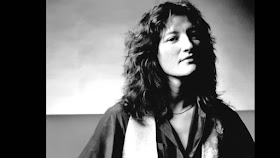All of us understand that poetry is a mode of speech defined by memorable words. Prosody is the science of making verses easier to recall, either through concision or repetition. Even if one were to argue that "forgettable poetry" is not an oxymoron a tautological question of relevance arises: "If no one cares then who cares? If a tree falls in the forest does anybody give a damn?"
As with all speech, poetry requires an audience. The vast majority of people today cannot recite a stanza written in this millennium but can sing thousands of contemporary lyrics. As a practical matter, poetry is less a mode of speech than singing. Those concerned about adding the medium of music will bear in mind that long before the 20th century disappearance of spoken verse its most successful example was Shakespeare's theater.
What aspect of song penetrates our memories most efficiently? A drum beat might meet with blank stares. A chord progression might not be identified but two or three notes can spark recognition and many to sing along. Verse being a participation sport, this defines modern poetry just as "verbatim" has defined it from its inception.
Technically challenged poets speak vaguely of "musicality", a term that provokes cringing and eye rolls from geeks. The truth is that poetry needs more than facsimile; it requires actual music to attract an audience. (And, perhaps, a readership. Royalties from all contemporary poetry books combined wouldn't add up to those from one Leonard Cohen or Bob Dylan lyric collection.)
Content regents and corazoners will insist that the profound and poignant will attract attention [sooner or later]. All the evidence points to a very different conclusion. Melody is everything in song and, thus, verse. Allow us to demonstrate with two piercing examples:
I watch you reading a bookContrast this with John Prine's child-like, tragicomic "Christmas in Prison" (or almost any other Prine song), published in 1973:
I get to thinking our love's a polished stone
You give me a long drawn look
I know pretty soon you're going to leave our home
And of course I mind
Especially when I'm thinking from my heart
But life don't clickety-clack down a straight line track
It comes together and it comes apart
You say you hope I'm not the kind
To make you feel obliged
To go ticking through your time
With a pained look in your eyes
You give me the furniture, we'll divide the photographs
Go out to dinner one more time
Have ourselves a bottle of wine
And a couple of laughs
And when first you left
I stayed so sad I wouldn't sleep
I know that love's a gift, I thought yours was mine
And something that I could keep
Now I realize that time is not the only compromise
But a bird in the hand could be an all night stand
Between a blazing fire and a pocket of skies
So I hope I'm not the kind
To make you feel obliged
To go ticking through your time
With a pained look in your eyes
I covered the furniture, I framed the photographs
Went out to dinner one more time
Had myself a bottle of wine
and a couple of laughs
And just the other day
I got your letter in the mail
I'm happy for you, its been so long
You've been wanting a cabin and a backwoods trail
And I think that's great
I seem to find myself in school
It's all okay, I just want to say
I'm so relieved we didn't do it cruel
But ain't life a brook
Just when I get to feeling like a polished stone
I give me along drawn look
It's kind of a drag to find yourself alone
And sometimes I mind
Especially when I'm waiting on your heart
But life don't clickety-clack down a straight line track
It comes together and it comes apart
'Cause I know you're not the kind
To make me feel obliged
To go ticking through my time with a pained look
In my eyes
I sold the furniture, I put away the photographs
Went out to dinner one more time
Had myself a bottle of wine
Had a couple of laughs
And wasn't it fine
Prine's trademark trinaries underscore the melody, creating an
earworm. His lyrics, while evocative and moving, are not near
Ferron's in depth but we, individually and collectively, carry them into
the future far more readily and easily than Ferron's work.
It was Christmas in prison
And the food was real good
We had turkey and pistols
Carved out of wood
And I dream of her always
Even when I don't dream
Her name's on my tongue
And her blood's in my stream
Wait awhile eternity
Old mother nature's got nothing on me
Come to me
Run to me
Come to me, now
We're rolling
My sweetheart
We're flowing
By God
She reminds me of a chess game
With someone I admire
Or a picnic in the rain
After a prairie fire
Her heart is as big
As this whole goddamn jail
And she's sweeter than saccharine
At a drug store sale
Wait awhile eternity
Old mother nature's got nothing on me
Come to me
Run to me
Come to me, now
We're rolling
My sweetheart
We're flowing
By God
The search light in the big yard
Swings round with the gun
And spotlights the snowflakes
Like the dust in the sun
It's Christmas in prison
There'll be music tonight
I'll probably get homesick
I love you
Goodnight
Wait awhile eternity
Old mother nature's got nothing on me
Come to me
Run to me
Come to me, now
We're rolling
My sweetheart
We're flowing
By God
Again, the difference is prosody, yes, but mostly melody. So what can we do with this?
To be continued.

No comments:
Post a Comment
Your comments and questions are welcome.